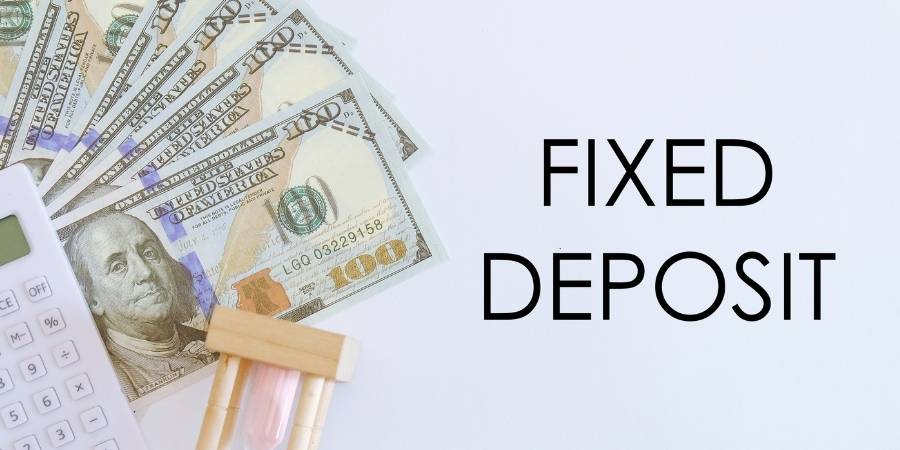Fixed deposits are considered to be one of the safest options for investment. However, if you have an FD with a bank experiencing default or insolvency proceedings, your money will no longer be safe. Fixed deposits are usually non-financial because they are not readily convertible into cash and do not earn any interest. If you need money, there is no way that you can withdraw money from your fixed deposit account without getting penalized by banks.
Fixed Deposit Offers a Fixed Rate of Interest Until the Maturity of a Deposit
A fixed deposit (FD) is a financial instrument banks and financial institutions offer. The fixed deposit provides a guaranteed interest rate until a deposit’s maturity. Banks offer FDs to customers who wish to park their money with them for a specific period, usually from three to five years.
A person who invests in FD would be eligible for an assured rate of return during his tenure as per the prevailing interest rates applicable for that particular fixed deposit scheme. However, some restrictions on withdrawing money before maturity vary from bank to bank but mostly range between six months and two years, depending on the investment an investor makes into FDs.

The Interest Rates on FDS Are Fixed and Depend on the Tenure of the Deposit
The interest rates on fixed deposits are fixed and depend on the tenure of the deposit. For example, if you have deposited Rs 2 lakh in a bank for 20 years and get an interest rate of 7% per annum, your total amount at maturity would be Rs 3,80,000 (Rs 2 lakh x 7% x 20). The interest rate is called the nominal rate as it does not consider inflation and other factors like taxes.
Fixed Deposits Are Short-term Investments That Fetch Higher Returns Than Savings Accounts
FDs are considered short-term investments and are not treated as financial assets. This is because the maturity period of a fixed deposit is less than five years. A bank account with a maturity period of fewer than five years is treated as a short-term investment that fetches higher returns than savings accounts.
However, It is a Safer Investment Option Than Stocks and Mutual Funds
FDs are less volatile in the short run than stocks and mutual funds. This is because of their fixed maturity. Even if the central bank cuts an interest rate, your deposit amount remains unchanged. Hence, it becomes easier to predict your return over a while than in stock investing, where you have no idea how much money you will make or lose.
The safety aspect is another reason many investors prefer fixed deposits over other financial assets like stocks and mutual funds. It is difficult for an individual investor to invest vast sums of money in a single company so that he can benefit from its growth potential (for example: buying 1000 shares at $10 each). On the other hand, they can open multiple FD accounts with different banks for different purposes, like short-term liquidity requirements, without putting too much pressure on their budget.

The Interest Income From an FD is Taxable, but There is No Tax Deduction at Source (TDS)
While TDS is deducted at source for interest income from savings bank accounts, the same rule does not apply to fixed deposit accounts.
For example, if your interest income in a fiscal year exceeds Rs 40,000, you will have to pay TDS. You can also claim this income while filing your returns and get a refund if charged with excess TDS. This also makes your FD safe from bankruptcy or insolvency proceedings of the bank since banks or financial institutions cannot seize your FD in case they default on repayment.
When you deposit your money in a fixed deposit account, it is not treated as a financial asset. This means that the bank will not report your fixed deposit balance to any agencies such as credit bureaus or credit reporting agencies when they apply for loans.
It is essential to understand that FD returns’ tax rules may change depending on whether individuals or institutions hold them.
Taxation rules for FD returns may also vary depending on the type of income earned, as well as on the tenure of the deposit. FDs are a great way to invest your money. They offer you a fixed interest rate and are not subject to inflation or changes in the stock market. But, there are some taxes that you need to pay before withdrawing your money.

